What is ESPRI ?
ESPRI (Ensemble de Services Pour la Recherche à l’IPSL) is the Computing and Data Center of IPSL (Institut Pierre Simon Laplace) in France. It is dedicated to data management, collection, distribution, and services in climate science for both observational and modeling data. ESPRI has organized access to various reference datasets and high-performance computing resources for more than 20 years, through a shared, multi-site data analysis platform dedicated to the IPSL laboratories, their partners, and climate science worldwide. ESPRI provides a Core Trust Seal-certified data repository and a range of services built on an IT infrastructure distributed across three sites located at École Polytechnique, Sorbonne Université, and the University of Versailles Saint Quentin.
Our Mission
The IPSL federation has different missions among them to develop and propose a set of regional, national and international computing and data services for research related to environmental and climate science. To fulfill these missions, ESPRI has been mandated by IPSL to administrate IT systems, network and manage data from the IPSL Climate Modeling Center (CMC) and Center for Earth Observation (CEO). As described in the IPSL Strategic Digital Plan, the missions of ESPRI are :
- to develop services that encompass different aspects of the data lifecycle, from building a data archive, through data processing and data curation ;
- to provide data dissemination and distribution through dedicated data portals;
- to provide data access along with HPC computing facilities;
- to preserve the data and metadata integrity and access over time.
ESPRI services centralize many data products of interest for the earth-science community (satellite products, ground-based dataset, operational analyses and forecasts, climate model simulations). Thus, ESPRI engineers harmonize the development of a mutualized and multi-site data analysis platform and work in close relationship with scientific teams, allowing them to understand and to take into account their requirements efficiently. ESPRI services ensure a solid and constant support to the French climate research, by preserving an attentive listening to the different research teams of IPSL and its partners. This approach also allows creating scientific synergies in order to collect the new needs of the community and propose original and structuring computing services.
ESPRI also acts as a key component of two French Research Infrastructures sustaining their respective missions :
- For AERIS/DATA-TERRA, ESPRI generates products from observations and support services for data access, helps to conduct campaigns, or interface with models.
- For CLIMERI-France, which aims at carrying out international numerical simulations programmed within the framework of the WCRP at global and regional scales, ESPRI makes their results available to various users.
ESPRI is registered with the CNRS/INIST as a DataCite DOI supplier. As such, ESPRI has a contractual obligation to guarantee the integrity of metadata, to maintain access to data and metadata, to respect Datacite metadata schemas and to ensure data quality control in accordance with the standards.
Community & Partners
ESPRI provides a numerical infrastructure for climate data and services, catering to a wide range of scientists from both public and private sectors involved in environmental sciences. It supports national and European research infrastructures, contributing to global climate modeling efforts and providing essential data for international projects.
Organization & Teams
ESPRI is organized and managed around three teams of engineers, offering a full range of services for managing, processing and exploiting data on dedicated IT infrastructures.
Background & history
ESPRI is the result of a long process of construction, in close collaboration with research teams to meet their needs as closely as possible. It is also the result of a multi-stage IPSL integration process (merging different data management teams over the years) and national integration.
Awards
CoreTrustSeal certification
Since January 18, 2024, ESPRI has been certified as a Trusted Data Repository by the international certification body Core Trust Seal.
CoreTrustSeal certifies data repositories that demonstrate compliance with 17 Core Trustworthy Data Repositories Requirements. These universal requirements reflect the essential characteristics of trustworthy data repositories and “FAIR” (Findable Accessible Interoperable Reusabe) practices aimed at improving the use of research data.
To obtain this certification, ESPRI’s teams have carried out for two years a major documentary project to describe all the center’s lifecycle data management practices. This work has resulted in the production of the Data Management and Preservation Plan (DMP), available on the ESPRI website, which details the different processes used and the storage, distribution and backup options in place for managing the data of repository users.
This certification reinforces the authorization granted by Datacite to the ESPRI center to issue unique digital identifiers (DOI – Digital Objective Identifier) for the datasets it hosts. This service is linked to the national service and the thematic repository.
CNRS Collective Cristal Prize
Over time, ESPRI has proved to be a major asset for the IPSL, providing the scientific community and society as a whole with valuable insights into understanding the Earth system and climate change.
In 2021, ESPRI was awarded the CNRS Collective Crystal Prize. This prize is awarded to teams of men and women, research support staff, who have carried out projects that are remarkable for their technical mastery, their collective dimension, their applications, their innovation and their impact.
For ESPRI, this distinction rewards the years of work, consultation and reflection that have gone into developing an infrastructure of excellence for climate research. It highlights the dedication and efforts of all the members of ESPRI, the laureates as well as the contract staff in our teams, the laboratory staff who contribute to the community, and all the past and present collaborations that deserve to be recognised.

